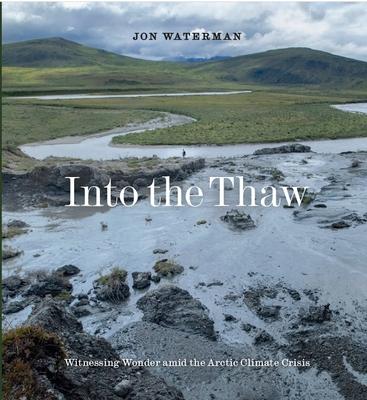An award-winning author and photographer returns to the Arctic to document the effects of climate change.
Forty years ago, the park ranger Jon Waterman took his first journey into the Alaskan Arctic, to the Noatak headwaters. He was astonished by the abundant wildlife, the strange landscape, and its otherworldly light--how the "frequent rain showers glow like lemonade poured out of the sky." Taken with a new sense of wonder, he began to explore the North on several trips in the 1980s.After a 30-year absence from the Noatak, he returned with his son in 2021. Amid a now-flooded river missing the once-plentiful caribou, he was shocked and heartbroken by the changes. The following year, in 2022, he took one final journey "into the thaw" to document--for this lushly illustrated and scholarly book--the environmental and cultural changes wrought by the climate crisis.
A widely published author and photographer, Waterman's narrative alternates between adventure and wilderness memoir and plainly stated natural history of the area. Chased by bears, sometimes alone for weeks on end amid hordes of mosquitoes, he notes the extraordinary changes from 1983 until the present day: brush grown over the tundra in a phenomenon called Greening of the Arctic, tear-drop-shaped landslide thaw slumps--a.k.a. thermokarsts--caused by thawing permafrost, and an increasing loss of sea ice as he travels along the Chukchi and Beaufort Seas. The author also spends time with the kindhearted, welcoming Inuit or Inupiat most affected by the Arctic crisis, who share how their age-old culture has attempted to cope with "the thaw." Stricken by the change, Waterman paints an intimate portrait of both the villages and the little-visited landscape, because "it's high time that we truly understand the Arctic." He writes, "Lest we forget what it once was."
Through his quest for wonder--in prose illuminated by humility and humor--Waterman shows how the Arctic can confer grace on those who pass through. Despite the unfolding crisis, as a narrative of hope, at the book's end he suggests actions we can all take to slow the thaw and preserve what is left of this remarkable, vast frontier.
